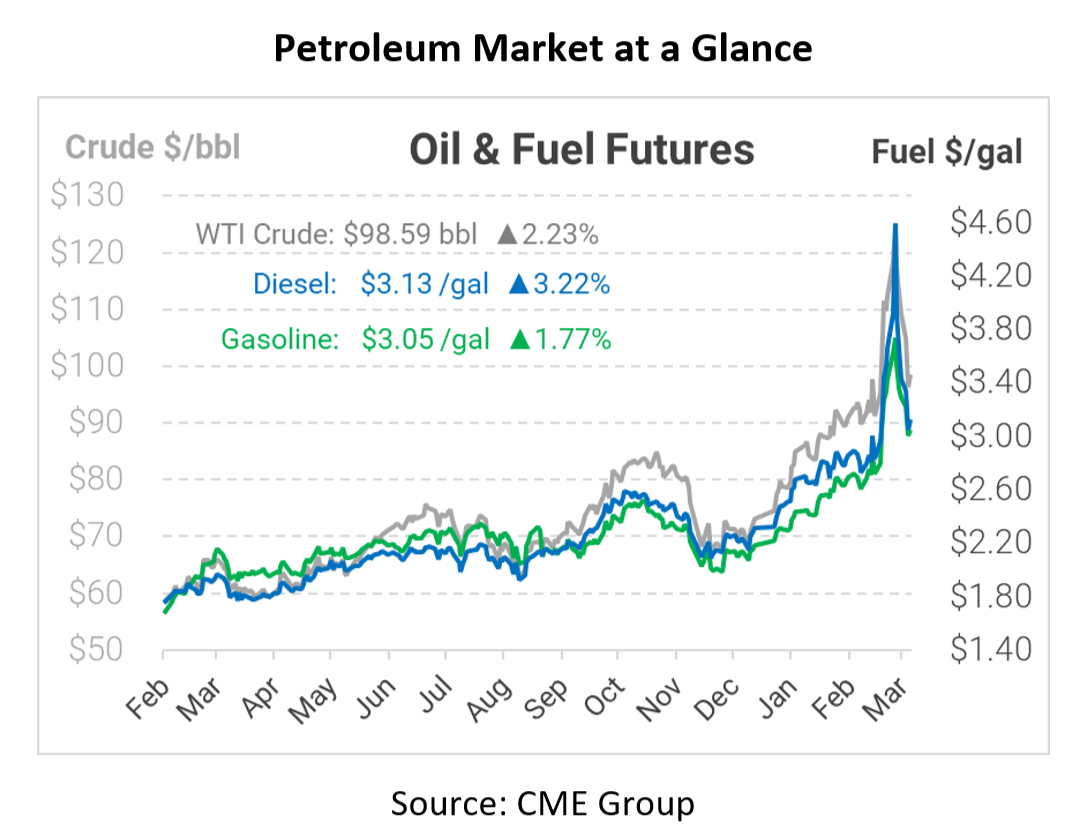
Russian Sanctions – Where They Are Hurting Most
After pulling back heavily yesterday, oil prices are up slightly, with WTI crude hitting $98.59. With Russian and Ukrainian talks yesterday having no positive outcome, Russia seems to be under more pressure to end the invasion with a swift victory of Kyiv. However, the invasion has been anything but swift, and the sanctions imposed by NATO are starting to impact Russia severely.
Russia is threatening that the companies pulling out of Russia will have their assets frozen by the state. This means that Russia would acquire any Western assets that have been left behind for financial assistance amid the economic crisis. To understand how this affects Russians specifically, Vladimir Potanin, the president of metals company Norilsk Nickel and richest Russian citizen, has lost most of his company’s value due to sanctions. He is now pleading with the Russian government not to take the assets of certain Western companies because “consequences of such a step – global distrust of Russia and on the part of investors – we would experience for many decades.” Simply put, it’s bad for business, and the Russian government is losing the support of their wealthiest oligarchs because of it.
The nationalization of western assets could be disastrous for oil markets over the long-term. Western oil majors have been instrumental in bringing Russian oil to the heights it has reached, but majors would be very hesitant to re-engage if they believe their financial interests can be stolen by the government at any time. Without assistance, Russia’s oil businesses could flounder, struggling to keep pace with their customers’ demand. We could even see a scenario comparable to Venezuela, in which a major oil producer falls to a net importer due to sanctions and under-investment. A dwindling Russia would mean less oil hitting global markets, keeping prices structurally higher.
So, what happens next? Russians are starting to lose grip of the economic comfort they were so accustomed to. Putin has already “erased 30 years of political gains since the Cold War ended,” according to Russian dissident politician Vladimir Kara-Murza. It appears that Putin will not stop until he is stripped of his oppressive power, but only the Russians can affect the political change required. Nobody really knows how citizens feel because of the restricted flow of information in and out of Russia. Most likely, sentiment is mixed, with some love and some hate toward Putin. Nobody knows what will happen next, but the decisions Russia (and the West) make now may have consequences for years to come.
This article is part of Daily Market News & Insights
MARKET CONDITION REPORT - DISCLAIMER
The information contained herein is derived from sources believed to be reliable; however, this information is not guaranteed as to its accuracy or completeness. Furthermore, no responsibility is assumed for use of this material and no express or implied warranties or guarantees are made. This material and any view or comment expressed herein are provided for informational purposes only and should not be construed in any way as an inducement or recommendation to buy or sell products, commodity futures or options contracts.






